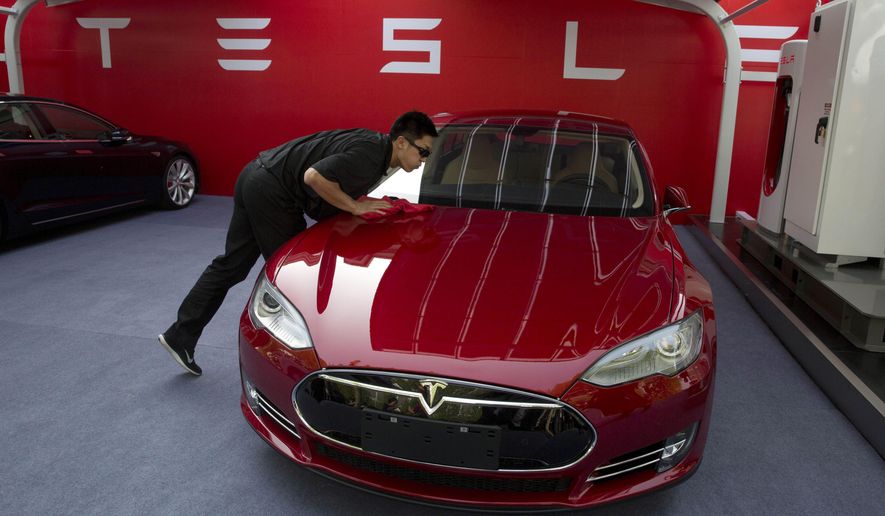Electric car pioneer Tesla moved a big step closer to bringing its model of direct sales to customers to Maryland as the Maryland General Assembly this week approved a bill lifting a blanket state ban on the practice.
The bill now goes to Republican Gov. Larry Hogan’s desk for his signature.
Tesla has waged a state-by-state battle with the established network of traditional car dealers, who have argued Tesla’s direct-to-customer sales methods would undercut their markets and the legal protections put in place for consumers. Tesla and its backers say the dealers are trying to protect their businesses while limiting competition.
House Bill 235 authorizes California-based Tesla Motors to be licensed as a dealer in the state, although with a number of restrictions and reservations. Tesla officials nevertheless hailed the measure as a win for free markets everywhere.
“This legislation confirms the company’s ability to bring its direct-to-consumer sales model to Maryland residents, which brings it in line with virtually every other state,” Diarmuid O’Connell, Tesla vice president of business development said in a statement to the press.
“This type of legislation can and should serve as an example to other states still blocking free markets, consumer choice, and American innovation. We now look forward to Governor Hogan signing this bill into law shortly and demonstrating that Maryland is indeed open to new business and high tech innovation,” Mr. O’Connell said.
Unlike in other states, the Maryland Tesla bill was supported by the Maryland Automobile Dealers Association (MADA), the dealers’ trade group. MADA’s support came with a price tag, however.
The bill, if signed, would grant Tesla and other direct-sales manufacturers restricted access to car buyers within Maryland. Tesla Motors dealerships, for example, can only operate in the state if they sell only electric or non-fossil-fuel burning vehicles. The bill also would forbid dealers who sell traditional gas- and diesel-powered vehicles from holding a franchise with Tesla.
Tesla also agreed to limit the number of licenses it will apply for in Maryland. Traditional dealerships in Maryland, in contrast, can open as many dealerships as they want.
Del. Kirill Reznik, a Montgomery County Democrat and a major backer of the bill, said it would allow Tesla a foothold into a Maryland’s high-income and environmentally-conscious markets.
“What we are looking at here is a car company or a group of car companies producing and selling a very unique vehicle,” he said. “If they were to go through the traditional model, they would lose money. The cost would be too high for them in the traditional market.”
There are 37 states — not counting Maryland — allowing car companies like Tesla to sell directly to customers. Still yet, there are dealership associations and state legislatures across the country that have successfully blocked the direct sales model.
Bans on direct sales have kept Tesla out of West Virginia, Virginia, Arizona, Texas, and Michigan. Legislators in some of those states are working on legislation similar to the kind crafted by Maryland’s General Assembly. But the opposition has been fierce.
West Virginia, for example, earlier this month became the fifth state to ban the direct-sales approach practiced by the company. The West Virginia bill was championed by state’s Senate president, who is an auto dealer.
Ruth Lemmon, president of the West Virginia Automobile and Truck Dealers Association, denied that her group as “anti-Tesla.”
“Tesla could better serve the consumers, the local communities and their product by becoming a true business partner to all concerned,” she told the trade publication Automotive News in an email. “West Virginia would welcome [Tesla] to join the ranks of dealerships and play by the same rules and requirements and laws we must do.”
• Chris White can be reached at cwhite@washingtontimes.com.




Please read our comment policy before commenting.